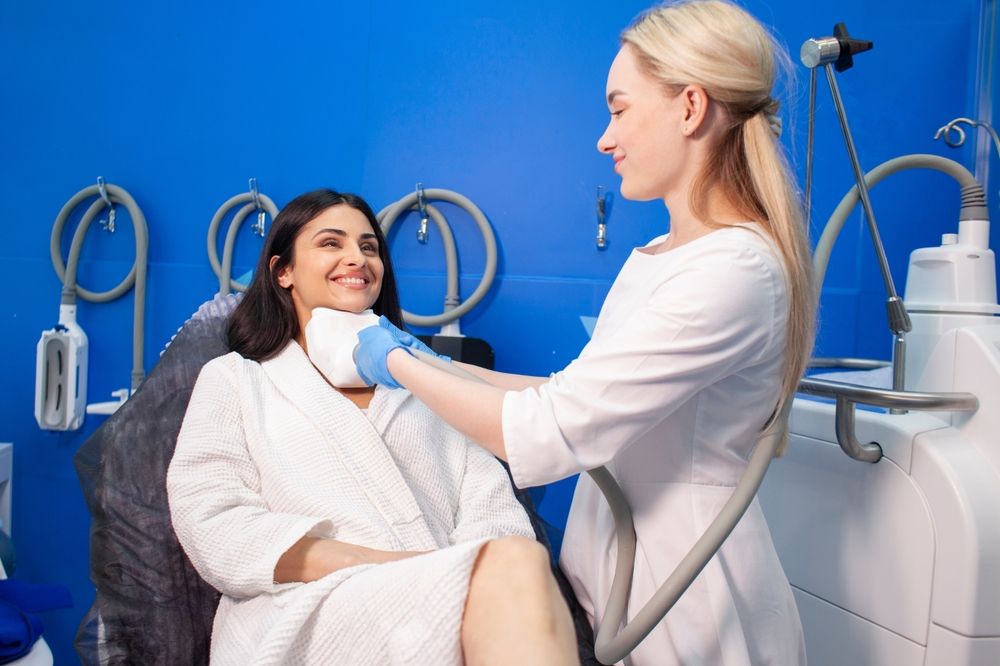Preparing for facial plastic surgery isn’t just about the procedure—it’s also about optimizing your body and mind in the weeks leading up to it. Lifestyle factors like nutrition, sleep, stress, and physical health play a critical role in how your body responds to surgery and how well it heals. For patients at North Charlotte Plastic & Reconstructive Surgery in Huntersville, NC, adopting healthy habits beforehand can support smoother recovery and more predictable outcomes.
Surgery, even when elective and minimally invasive, places stress on the body. A healthy foundation ensures that your immune system, cardiovascular health, and skin integrity are ready to support healing. Starting this preparation early—ideally at least a month before surgery—can make a measurable difference in how you feel during and after the procedure.
Nutrition as a Foundation for Healing
The food you eat leading up to your procedure can influence everything from inflammation levels to immune response. A diet rich in whole foods, lean proteins, and antioxidants supports cell repair and strengthens your body’s defenses. Prioritizing hydration is equally important, as water helps flush toxins and improves circulation.
Avoiding processed foods, excessive sugar, and alcohol is also recommended. These can impair the body’s ability to regulate inflammation and slow down the healing process. While supplements can play a role, whole foods remain the most reliable source of essential vitamins and minerals like zinc, vitamin C, and iron—all important for recovery.
Staying Active, Within Limits
Light physical activity can improve circulation, reduce anxiety, and support cardiovascular health. If you already have a workout routine, it’s generally safe to continue most activities up until a week or so before your surgery—though your surgeon may advise limiting intense exercise closer to the date.
For those who are sedentary, incorporating short walks or low-impact movements into your routine can help build stamina and improve post-operative circulation. However, it’s important not to push too hard or make drastic changes. The goal is to support overall wellness, not to exhaust the body right before it needs to focus on healing.
Sleep and Stress Management
Quality sleep is essential for immune function and tissue repair. Aim for at least 7–8 hours of rest per night in the weeks leading up to surgery. This allows your body to reset and reduces the risk of surgical complications related to fatigue or systemic inflammation.
Equally important is managing stress. Elevated cortisol levels can suppress immune response and interfere with recovery. Techniques such as deep breathing, meditation, journaling, or even quiet time in nature can have a meaningful impact on your mindset and your body’s ability to heal efficiently.
Avoiding Risky Habits
Certain habits should be minimized or avoided entirely before undergoing facial plastic surgery. Smoking is at the top of the list—it constricts blood vessels, limits oxygen delivery, and significantly impairs wound healing. Patients are advised to quit smoking at least several weeks in advance to avoid increased risk of complications.
Alcohol consumption should also be reduced or eliminated in the days leading up to surgery. Alcohol can thin the blood, interfere with medications, and dehydrate the body, all of which can impact your surgical results. Being honest with your surgeon about any substances you’re using—prescription or otherwise—is essential for planning a safe and successful procedure.
Communication with Your Surgical Team
Maintaining an open line of communication with your surgical team is one of the most important aspects of pre-operative preparation. They can provide individualized recommendations based on your medical history, lifestyle, and the specifics of your procedure. You’ll also receive a checklist of what to do (and not do) in the days before surgery, such as fasting guidelines or medication adjustments.
If you have concerns about your health, whether physical or emotional, this is the time to bring them up. Your care team at North Charlotte Plastic & Reconstructive Surgery is there to help you prepare from every angle—not just technically, but holistically.
Preparing Mentally and Emotionally
While much of the focus is on physical readiness, emotional preparation is equally valuable. It’s normal to feel nervous or excited in the days before surgery. Having a support system in place—whether it’s a trusted friend, family member, or counselor—can help you process your emotions and maintain a grounded mindset.
Take time to envision your recovery space, organize your schedule to allow for proper rest, and set realistic expectations for healing. Facial plastic surgery offers meaningful, confidence-boosting results, but those results unfold over time. Approaching the process with patience and mindfulness can contribute significantly to your satisfaction.
Resources
Rohrich, R. J., Ahmad, J. (2011). A Practical Approach to Preoperative Patient Evaluation. Plastic and Reconstructive Surgery.
Davis, K. E., & Schubert, W. (2020). Nutrition and Wound Healing in Surgical Patients. Surgical Clinics of North America.
Vigneswaran, Y., & Uffman, J. C. (2017). Enhancing Recovery Through Patient Optimization. Journal of Surgical Research.



